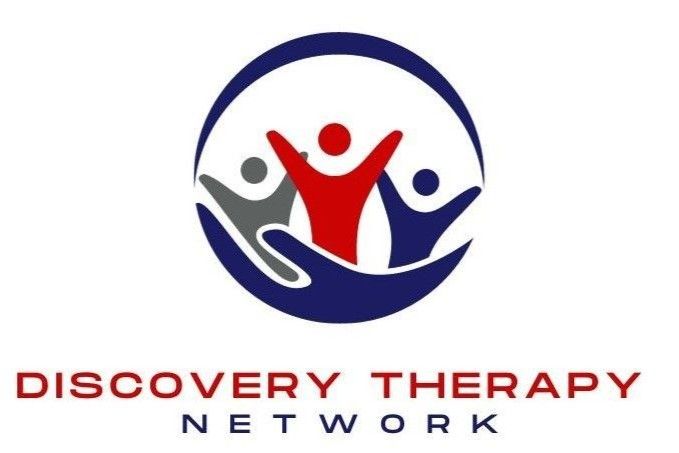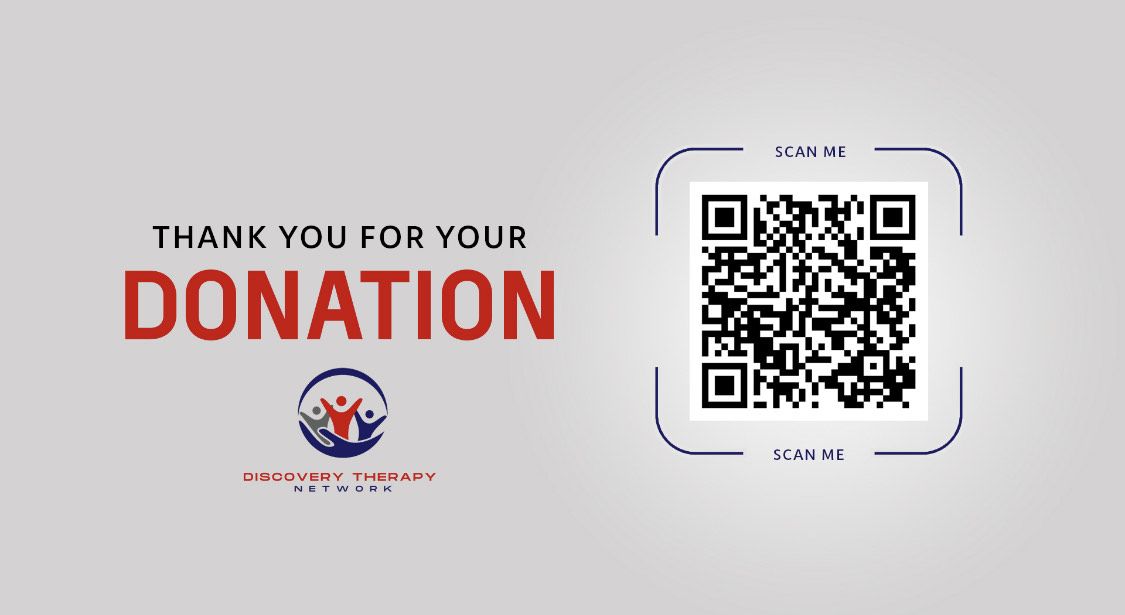Autism Symposium IV
Write your awesome label here.
AUTISM SYMPOSIUM
Discovery Therapy Network’s Autism Symposium will empower parents
and professionals with information and functional strategies on neurodivergent
interventions to promote progress with children diagnosed with Autism,
Asperger's, ADHD, ADD, and Pervasive Developmental Disorder. Our mission, as a non-profit organization, is
to provide services for children diagnosed with Autism and other special needs,
as well as education on therapeutic advancements to parents and professionals.
Given today’s advancements in research, evidence-based practice, publications and technology, there is a need to deliver relevant and practical information for home and school settings. Our panel of experts will provide evidence-based information to enhance student engagement, learning, and retention of information. The panel will include an occupational therapist, speech therapist, board certified behavior analysis, and a special educator. The professional speakers will provide information and facilitate engaging presentations about strategic therapeutic advancements that can be applied at school and home.
Our symposium is designed with topics that are relevant and pertinent to current research for evidence-based information. We encourage and mobilize parents and professionals towards discovering new possibilities. This includes developing language, effective communications, sensory processing skills, attention to tasks, fine/gross motor skills, education/learning advancement and behavior management. Our guest speakers will be making contributions to improve functional outcomes while aiding parents and professionals, in an impactful way. Non-Financial Disclosure: All presenters have no financial disclosure or conflict of interest with the material in this presentation.
Cost: Autism Symposium Bundle for 5 sessions: 69.00. Individual Sessions: 14.99 - 25.99. Cost for each course is listed below
Given today’s advancements in research, evidence-based practice, publications and technology, there is a need to deliver relevant and practical information for home and school settings. Our panel of experts will provide evidence-based information to enhance student engagement, learning, and retention of information. The panel will include an occupational therapist, speech therapist, board certified behavior analysis, and a special educator. The professional speakers will provide information and facilitate engaging presentations about strategic therapeutic advancements that can be applied at school and home.
Our symposium is designed with topics that are relevant and pertinent to current research for evidence-based information. We encourage and mobilize parents and professionals towards discovering new possibilities. This includes developing language, effective communications, sensory processing skills, attention to tasks, fine/gross motor skills, education/learning advancement and behavior management. Our guest speakers will be making contributions to improve functional outcomes while aiding parents and professionals, in an impactful way. Non-Financial Disclosure: All presenters have no financial disclosure or conflict of interest with the material in this presentation.
Cost: Autism Symposium Bundle for 5 sessions: 69.00. Individual Sessions: 14.99 - 25.99. Cost for each course is listed below
Write your awesome label here.
Our high quality courses
Discovery Therapy Network is an AOTA approved provider of continuing education. Courses are currently being submitted for approval in January 2025.
Sign up today to receive email updates and a 15% off coupon codes for AOTA members.
Advance your KNOWLEDGE
AUTISM SYMPOSIUM IV BROCHURE
Write your awesome label here.
Dr. Harriet LaChelle Walker-Dumas
Dr. Harriett Walker-Dumas is the
founder and executive director of Discovery Therapy Network, a non-profit
organization. Our mission is to provide
education and services on therapeutic advancements to empower students,
educators, administrators, parents, and professionals. Our focus is helping children diagnosed with
Autism and other special needs to learn new skills. We provide professional
training, workshops, webinars, summer camps, educational opportunities,
therapeutic activities, and social skill training.
As a pediatric occupational therapist with over 27 years of
experience, her passion is promoting therapeutic gains with patients and
students. She has directed and
co-coordinated camps for children with special needs for seven years. Previously, Dr. Walker-Dumas has owned and
operated three pediatric therapy facilities, provided school based contracting
services, Authored The Wonder Paper – Handwriting Development System, and patented The
Upper Extremity Stroke Apparatus. Dr.
Walker-Dumas recognizes the potential in children’s abilities and strives for
optimal achievement of their highest functional skill levels.
Non-Financial Disclosure: The current presenter has no financial
disclosure or conflict of interest with the material in this presentation.
Write your awesome label here.
Dr. Harriet LaChelle Walker-Dumas
Course: Sensory Processing Treatment Interventions at Home and School
Write your awesome label here.
Mrs. Misty Thompson
Mrs.
Thompson is a dedicated special education teacher committed to her
students. She currently attends Georgia
Southern University and is pursuing a Master’s Degree in Educational Leadership. She has worked in school districts in Georgia
with elementary aged children. As a
professional committed to her students’ learning, she has worked to assist
students diagnosed with Autism, Aspergers, Pervasive Developmental Disorder,
Oppositional Defiant Disorder, Emotional Behavior Disorder, and several other diagnoses.
Mrs.
Thompson utilizes a variety of executive functioning techniques to increase
focus and attention in the classroom.
This includes classroom management strategies and Positive Behavior Interventions
and Support (PBIS) strategies. Her focus
is to engage the student using visual behavior communication techniques, cognitive
behavior visual tools for students to initiate work, sensory processing activities
and PBIS strategies to reward completion of assignments. Mrs. Thompson is married and enjoys spending
time with her family.
Non-Financial Disclosure: The current presenter has no financial
disclosure or conflict of interest with the material in this presentation.
Write your awesome label here.
Ms. Rachel Davis, MA, SLP-CCC
Ms. Rachel Davis enjoys working with children and helping them to discover new possibilities as a speech language pathologist. Her focus is on maximum engagement during therapy sessions to advance speech, functional communications, and language skills. Ms. Davis obtained a Bachelor of Science in Education - Communication Disorders, and a Master of Education - Communication Disorders, from Valdosta State University in Valdosta, Georgia. Her professional speech therapy experience includes working with school districts as a special education team leader and providing services to students. In the education setting she has collaborated with special education teams, parents, general educators, and special educators to promote students’ academic achievement. Previously, she worked in acute care and inpatient services with adolescents and adults. Her current and past professional involvement includes memberships with the American Speech-Language-Hearing Association, Arizona Speech-Language Hearing Association (mentorship program), and Georgia Speech-Language Hearing Association.
Non-Financial Disclosure: The current presenter has no financial disclosure or conflict of interest with the material in this presentation.
Write your awesome label here.
Mrs. Takisha Walls, MA, BCBA
Mrs. Walls, MA, BCBA is an Atlanta Native and passionate about helping others overcome obstacles one goal at a time. She became certified as a Behavior Analyst in August 2021, and specializes in working with the early intervention population of children diagnosed with Autism (ages 2 - 7).
Mrs. Walls started her career after transitioning from the mental health field of marriage and family therapy, providing counseling and case management to families across Georgia. Given her foundation in trauma informed practice, she furthered her ability to make a difference with children by pursuing a degree in Applied Behavior Analysis (ABA), becoming a Board Certified Behavior Analyst. She currently works with clients in home and school settings using naturalistic teaching, visual supports, and behavior-reduction strategies to guide her work to assist parents, teachers, and students in achieving the most positive outcomes.
Non-Financial Disclosure: The current presenter has no financial disclosure or conflict of interest with the material in this presentation.
Write your awesome label here.
Sign up to our newsletter and get 10% off!
Thank you!
Write your awesome label here.
AOTA CEUs
Satisfactory course completion requirements for AOTA continuing education credit:
AOTA Approved Provider - CEU Information:
Discovery Therapy Network maintains records for a period of seven years for verification purposes. Our learning management system allows us to add a course and set the delivery format to live and in person. This will allow us to maintain the permanent record and have access to information for excel record keeping when needed. Each learner can log into the LMS and reprint the certificate that was issued at any time.
Discovery Therapy Network will provide the pre-test questions at the beginning of the learning activity. This will allow you to identify points of emphasis for the course. Requirements: Participants must attend and obtain a score of 80% on the post-test for satisfactory completion. The post-test and course evaluation is required to be completed, and then participants will obtain a certificate of completion with the CEU credit listed.

